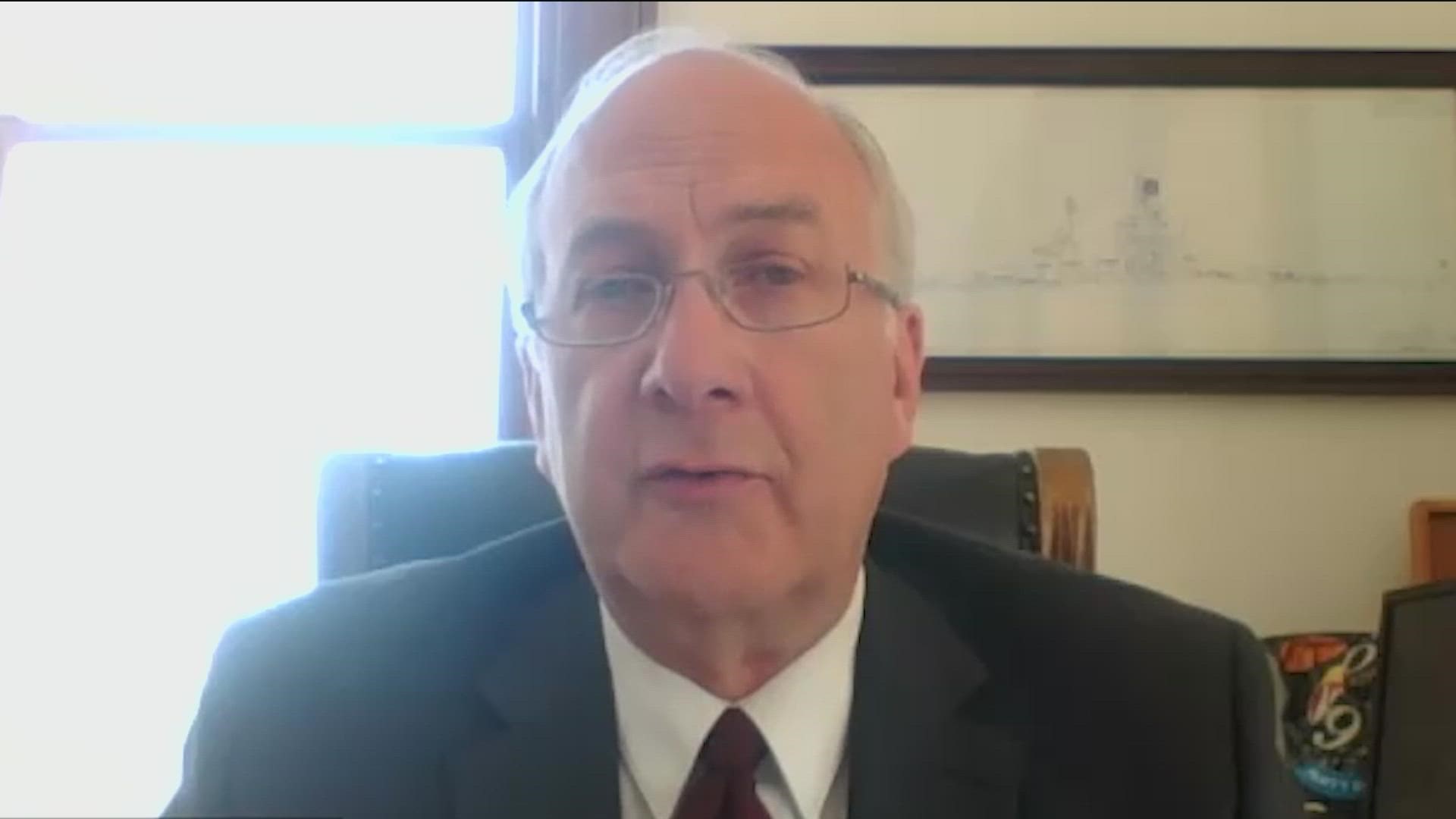BOISE, Idaho — With a major change expected this summer to Idaho’s abortion law, the legal, law enforcement, and medical community are working to determine how the law will play out in reality. A major topic of conversation centers on Prosecuting Attorneys and how they will handle cases of illegal abortion.
Prosecutors are handed investigations from the law enforcement, from there, based on the facts of the case, they decide if they will pursue the case in court. That room for determination creates questions about how Idaho prosecutors could handle situations.
For expert insight on the topic and discussion around it, KTVB spoke with Twin Falls prosecutor and president of the Idaho Prosecuting Attorneys Association, Grant Loebs. He said, yes, the topic is complicated, but it comes with the territory of the profession.
“Like anything else, we just read the law that the legislature passed. We try to interpret it properly. We try to put it into effect in a rational legal way, as foreseen by the legislators who passed it. And, you know, we'll just wait and see how it actually plays out. I don't know how many cases we'll have, that the police bring to us that contend that this law has been violated. Your guess is as good as mine on that,” Loebs said.
There are questions about how the new law will be handled, and if it is going to be a complicated law to interpret. Some early concerns center on it being vague.
"Doctors or abortion providers have rules to follow under this statute, it's not an absolute prohibition. So, I think the complexity will be in determining whether any of the exceptions exist and looking into the facts surrounding the particular case and determining whether one of the three major exceptions exists in a case. And that's usually just looking at the evidence and obviously providing the defense attorney in the case with all of the information that we have and asking that defense attorney, as we do in every case, to come forward with anything that mitigates or changes the report that we've gotten from law enforcement. So, it's a long process, and I think it'll be a long process in these cases if they, in fact, come forward to us,” Loebs said.
Prosecutors in Idaho are elected positions, creating concerns for some about the idea of partisan prosecutors who could run for office on the idea of being all-in or all-out on prosecuting illegal abortions. Loebs said both of those extreme stances are illegitimate for a prosecutor.
“I think that your job is to enforce the law to the best of your ability. That doesn't mean there's no discretion in the enforcement of the law in a particular way, in a particular case. And I think to just blanket say 'I am either going to be as harsh as possible or I am either going to ignore the law entirely,' I think that's an inappropriate position for a prosecutor to take. Obviously, if you have those positions as a human being, that will color how your office prosecutes the case and how it uses its discretion. But, we elect humans to these jobs, we don't elect robots. That's a position we will learn once the law starts to take effect and we start to see how it's handled. I think that the only appropriate position for a prosecutor to take is that they'll look at each case on its merits as it comes forward to them,” Loebs said.
Specifically in Idaho, Loebs believes it's necessary for the medical community and the legal community to have some type of a conversation about the intricacies and gray areas of the new law. Like, what is the line doctors have to walk while determining if an abortion is medically necessary to save the life of the mother?
“I think it is appropriate, given the massive change that this is, to have a discussion between prosecutors and law enforcement and the medical community. Because I think none of us want to see cases where we're prosecuting doctors for doing something that doctors believe that they have to be doing. And so I think that a discussion is a good thing,” Loebs said.
Join 'The 208' conversation:
- Text us at (208) 321-5614
- E-mail us at the208@ktvb.com
- Join our The 208 Facebook group: https://www.facebook.com/groups/the208KTVB/
- Follow us on Twitter: @the208KTVB or tweet #the208 and #SoIdaho
- Follow us on Instagram: @the208KTVB
- Bookmark our landing page: /the-208
- Still reading this list? We're on YouTube, too:

